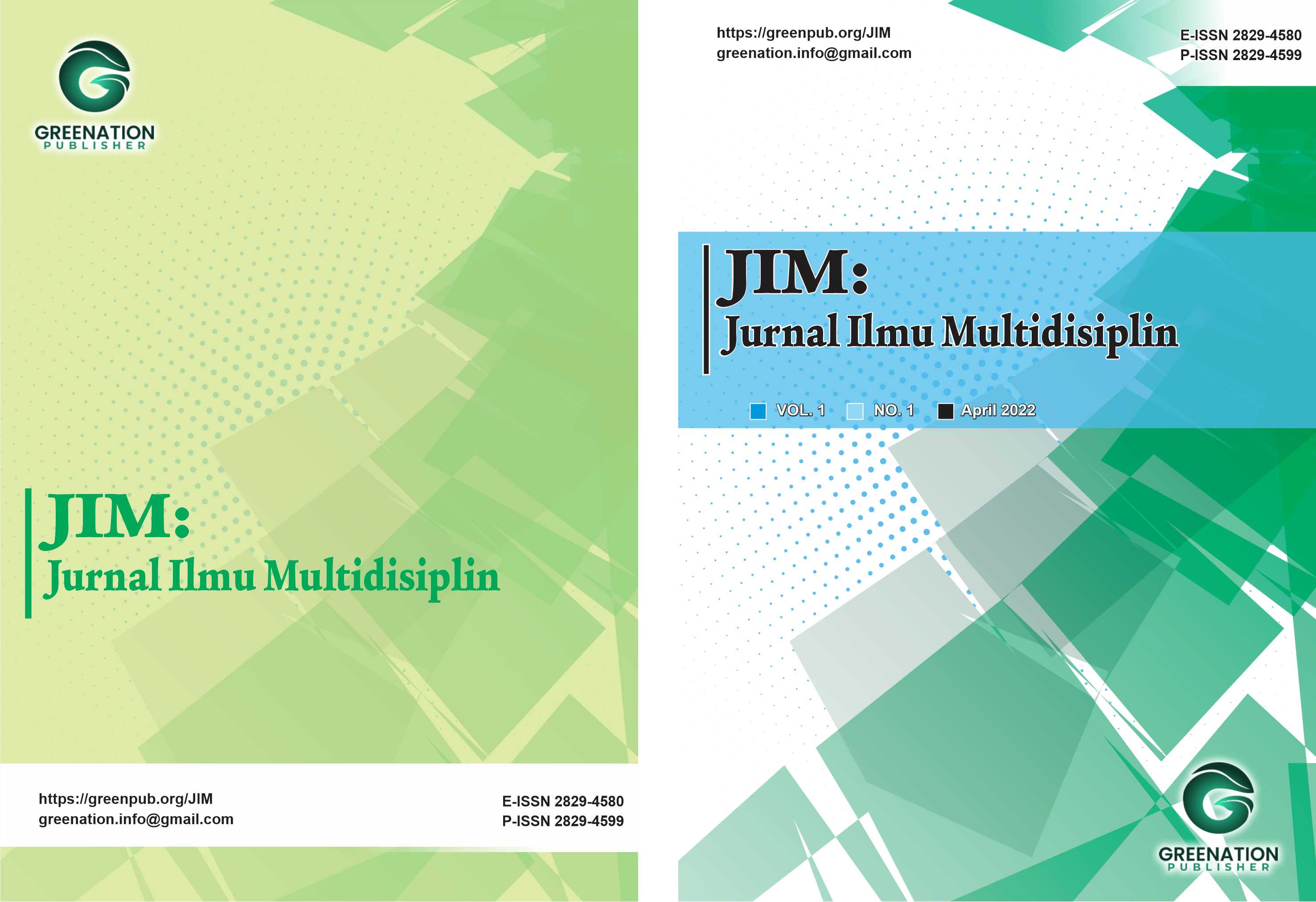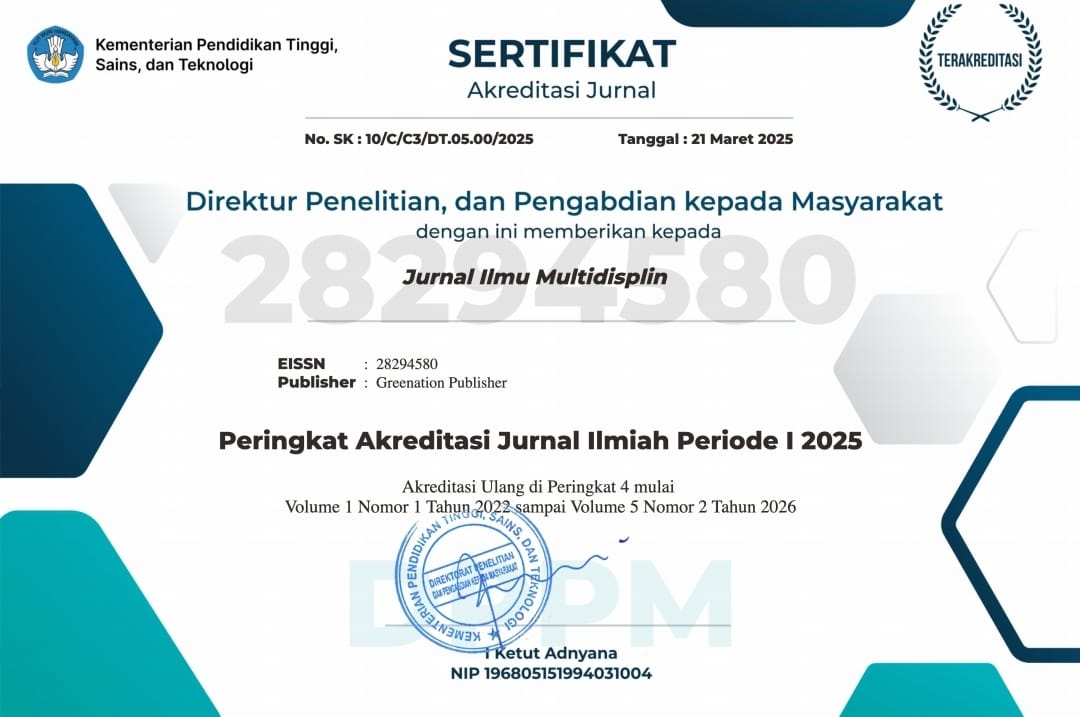Digitalisasi Pariwisata Regeneratif: Pengembangan Platform Ecogreen untuk Mendorong Transformasi Bisnis Berkelanjutan di Destinasi Wisata
DOI:
https://doi.org/10.38035/jim.v4i2.925Keywords:
digitalisasi pariwisata, pariwisata regeneratif, keberlanjutan, platform ecogreen, transformasi bisnisAbstract
Transformasi menuju pariwisata regeneratif menuntut pelibatan teknologi digital untuk mempercepat adopsi praktik berkelanjutan di kalangan pelaku usaha pariwisata. Penelitian ini bertujuan mengkaji konsep pengembangan sebuah platform digital berbasis ecogreen yang berfungsi sebagai penghubung antara wisatawan dan penyedia layanan wisata yang menerapkan prinsip keberlanjutan. Pendekatan penelitian dilakukan melalui studi pustaka dengan menganalisis berbagai jurnal ilmiah, laporan institusi internasional, dan data sekunder terkait tren digitalisasi serta model bisnis pariwisata berkelanjutan. Hasil kajian menunjukkan bahwa transparansi informasi keberlanjutan menjadi kebutuhan utama wisatawan modern, sementara pelaku usaha membutuhkan ekosistem digital yang mendorong visibilitas serta kredibilitas praktik ramah lingkungan mereka. Studi ini merekomendasikan pengembangan platform digital yang tidak hanya menyediakan fasilitasi pemesanan layanan wisata berkelanjutan, tetapi juga membangun sistem insentif, edukasi komunitas, dan sertifikasi keberlanjutan guna membangun ekosistem pariwisata yang regeneratif dan inklusif secara digital.
References
Bellato, L., Frantzeskaki, N., & Nygaard, C. A. (2023). Regenerative tourism: A conceptual framework. Tourism Geographies, 25(2), 133–150.
Buhalis, D., & Amaranggana, A. (2021). Smart Tourism Destinations Enhancing Tourism Experience through Innovation and Sustainability. International Journal of Tourism Cities.
Fitriani, N., Sari, R., & Wijayanti, L. (2022). Strategi Inovatif dalam Pengembangan Pariwisata Berkelanjutan di Era Digitalisasi 4.0. Jurnal Central Publisher.
Global Sustainable Tourism Dashboard. (2023). Annual report on sustainable tourism metrics. Global Sustainable Tourism Council.
Gössling, S., Scott, D., & Hall, C. M. (2022). Pandemics, tourism and global change: a rapid assessment of COVID-19. Journal of Sustainable Tourism.
Hernandez, M., Lopez, F., & Silva, R. (2024). Transparency and accountability in sustainable tourism platforms: The role of user feedback. Journal of Sustainable Tourism, 32(3), 345–360.
Kitchenham, B., & Charters, S. (2007). Guidelines for Performing Systematic Literature Reviews in Software Engineering. Keele University and Durham University.
Kumar, A., & Sharma, P. (2023). Digital empowerment of MSMEs in sustainable tourism: Challenges and opportunities. Tourism Management Perspectives.
Li, J., Chen, Y., & Wang, X. (2024). Enhancing green tourism through digital marketplaces: Tourist behavior and platform efficacy. Journal of Cleaner Production.
Menujuesok. (2025). Marketplace wisata berkelanjutan. https://menujuesok.id/
Nugroho, A., Setiawan, B., & Kurniawan, M. (2023). Aplikasi Edukasi Green Economy untuk Desa Wisata Berbasis Multimedia dan Augmented Reality. Jurnal Informatika dan Komputer.
Ruhanen, L., Weiler, B., Moyle, B., & McLennan, C. (2023). Digital platforms and sustainable tourism development: New opportunities and challenges. Journal of Tourism Futures.
Sigala, M. (2023). Digital transformation and sustainable tourism: A review and research agenda. Tourism Management.
Smith, K., & Lee, H. (2024). Regenerative tourism and digital innovation: Socio-economic and environmental impacts. Sustainability.
Snyder, H. (2019). Literature Review as a Research Methodology: An Overview and Guidelines. Journal of Business Research, 104, 333–339.
Tranfield, D., Denyer, D., & Smart, P. (2003). Towards a Methodology for Developing Evidence?Informed Management Knowledge by Means of Systematic Review. British Journal of Management, 14(3), 207–222.
United Nations World Tourism Organization (UNWTO). (2024). Ecotourism digital marketplace: Enhancing sustainable tourism through technology.
Zhang, Y., Huang, L., & Wang, Z. (2023). Digital education for sustainable tourism: Increasing awareness and action through online content. Journal of Environmental Education.
Downloads
Published
How to Cite
Issue
Section
License
Copyright (c) 2025 Moh. Fadhlurrahman Hidayat, Supriyani, Yayang Anggrenesia Mutiara, Zahara Rahmawati Fitriana, Ananta Budhi Danurdara, Sukmadi

This work is licensed under a Creative Commons Attribution 4.0 International License.
You are free to:
- Share— copy and redistribute the material in any medium or format
- Adapt— remix, transform, and build upon the material for any purpose, even commercially.
The licensor cannot revoke these freedoms as long as you follow the license terms.
Under the following terms:
- Attribution— You must give appropriate credit, provide a link to the license, and indicate if changes were made. You may do so in any reasonable manner, but not in any way that suggests the licensor endorses you or your use.
- No additional restrictions— You may not apply legal terms or technological measures that legally restrict others from doing anything the license permits.
Notices:
- You do not have to comply with the license for elements of the material in the public domain or where your use is permitted by an applicable exception or limitation.
- No warranties are given. The license may not give you all of the permissions necessary for your intended use. For example, other rights such as publicity, privacy, or moral rightsmay limit how you use the material.



























